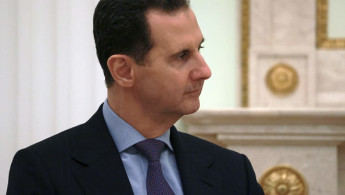Syria's Assad says will only meet Turkey's Erdogan if 'core' issues addressed
Syrian dictator Bashar al-Assad said on Monday he would only meet Turkish President Recep Tayyip Erdogan if the two countries could focus on the core issues of Ankara's support for "terrorism" and the pullout of Turkish forces from Syrian territory.
"The problem is not the meeting, but its content," a video clip released by the presidency showed Assad telling reporters in Damascus.
Turkey severed ties with Syria in 2011 after the outbreak of the Syrian civil war, in which it supported rebels looking to oust Assad. During the Syrian civil war, Assad termed all opposition to his regime as "terrorists", despite many of the rebel forces now backed by Turkey fighting the Islamic State group and al-Qaeda.
Ankara also established a "safe zone" in northern Syria where Turkish troops are now stationed, which has stopped Assad and Russia launching an invasion of the last liberated province of Idlib, though Damascus continues to bomb civilians and civil infrastructure in the territory.
Erdogan said earlier in July he would extend an invitation to Assad "any time" for possible talks to restore relations.
Turkey, which is home to millions of Syrians who sought refuge from Assad's devastating war, has faced a wave of anti-Syrian riots and Syrians within the country are reporting widespread and escalating discrimination and violence.
"What is the basis for the meeting? Would it be ending the reasons for the problem, which are supporting terrorism and withdrawing from Syrian lands?... This is the core of the problem," the Syrian dictator said.
"If there were no discussion about the core of (the problem), what would such a meeting mean?"
Assad added that he would respond positively to any initiative aimed at improving bilateral ties but that the basis for such talks must be set first.
(Reuters)




 Follow the Middle East's top stories in English at The New Arab on Google News
Follow the Middle East's top stories in English at The New Arab on Google News

![A group of Palestinians, foreign and Israeli activists gather to participated in an olive picking event on the land in the town of Battir, which is under threat of confiscation by Israel in Bethlehem, occupied West Bank on 8 November 2024. [Getty]](/sites/default/files/styles/image_330x185/public/2182930803.jpeg?h=199d8c1f&itok=__0LgGsa)
